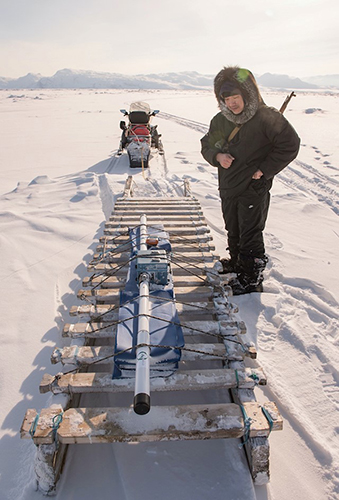Issue 12, Summer 2019
- 2019 field season at the Canadian High Arctic Research Station (CHARS) campus
- Northern Housing Forum knowledge products now online
- Engaging with communities in the Kitikmeot and Inuvialuit regions
- Summer students at POLAR
- POLARflicks video contest winners
- SmartICE wins Governor General’s Innovation Award
POLAR UPdate, Summer 2019
2019 field season at the Canadian High Arctic Research Station (CHARS) campus
POLAR has a busy summer field season planned for this year, and our research staff, based at the Canadian High Arctic Research Station (CHARS) campus in Cambridge Bay, Nunavut, will be undertaking the following activities:
- collecting biological samples to expand POLAR’S DNA reference library of arctic plants, fungi and animals, for environmental monitoring and food web studies;
- establishing long-term meteorological and environmental monitoring in the region surrounding the CHARS campus;
- mapping terrestrial ecosystems in the Greiner watershed near Cambridge Bay;
- monitoring bird distribution and abundance around Cambridge Bay and the adjacent northern mainland to understand breeding ecology and migratory patterns;
- monitoring changes in permafrost;
- researching sea-bottom habitats; and
- beginning long-term monitoring of climate change and winter extreme events.
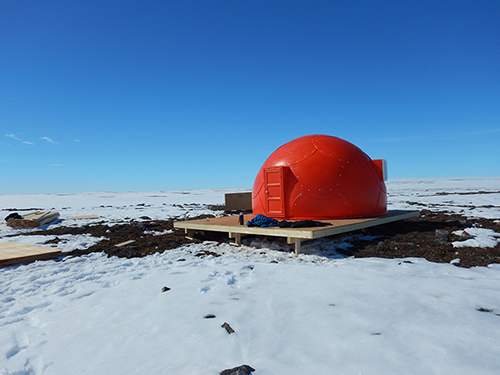
Polar Knowledge Canada is partnering with the National Research Council (NRC) to test and monitor Heat Recovery and Energy Recovery Ventilators at the CHARS campus and in the community of Cambridge Bay, with a view to improving air quality for housing across the North. This partnership will also include testing and demonstrating a Bioelectrochemical Anaerobic Sewage Treatment (BeAST) reactor at the CHARS campus this fall. The long-term goal is cleaner waste water entering sewage lagoons, with energy generated as a byproduct. POLAR is also working with Natural Resources Canada (NRCan) to assess energy use in remote communities—a step toward integrating clean energy solutions in the future. POLAR and NRCan will also monitor wind frequency and speed, and hours and intensity of sunlight in Cambridge Bay to aid future development of clean energy projects for the community and the CHARS campus.
Northern Housing Forum knowledge products now online
A new series of knowledge products on northern housing is now available on the POLAR website. These resulted from the POLAR-sponsored Northern Housing Forum in May 2018, which brought together over one hundred experts from across Canada, and Alaska, in Yellowknife, Northwest Territories to discuss solutions to one of the North’s most critical problems: the housing crisis that is causing overcrowding, homelessness, and related stress in communities across the North.
Participants contributed a wealth of information covering social, technical, and financial aspects of housing. The knowledge products, which include a fact sheet series, provide insights and recommendations for addressing housing challenges in the North. Learn more about these new resources here.
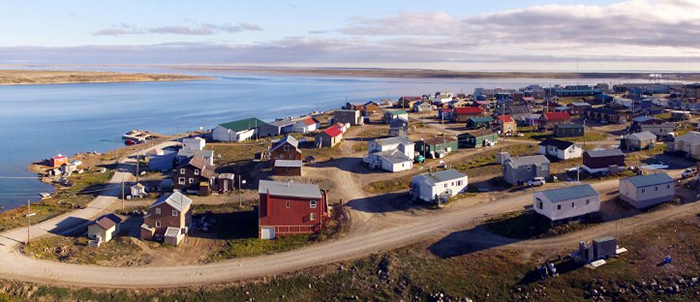
Engaging with communities in the Kitikmeot and Inuvialuit regions
This spring POLAR staff based in Cambridge Bay travelled throughout Nunavut’s Kitikmeot region (Kugaaruk, Taloyoak, Gjoa Haven, and Kugluktuk) and to Sachs Harbour, in the Inuvialuit region of the Northwest Territories, to update communities on POLAR’s programs and activities and learn more about local priorities. In Sachs Harbour, for example, POLAR met with the Inuvialuit Game Council (IGC), whose members’ top priorities concern caribou and whale populations: abundance, migration, ecology, health, critical habitats, and links to food security. Members identified several additional concerns, including management of increasing numbers of grizzly bears, the effects of shipping on the health of the marine environment, and Indigenous knowledge observations of climate change. In addition to identifying Inuvialuit priorities, the meeting provided an excellent opportunity to build relationships and discuss opportunities for POLAR support of IGC projects.
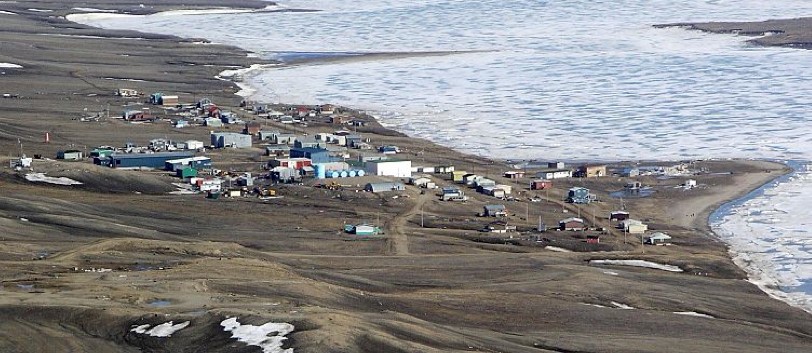
Photo: Timkal, Wikipedia Commons
Summer students at POLAR
Eleven students from universities and colleges across Canada, including several hired through POLAR’s first Inuit student recruitment program, have joined us for the summer at our Cambridge Bay headquarters and Ottawa office. They’re lending a hand in a wide variety of areas including administration, social media, liaison with other organizations, and research, on such topics as clean energy, freshwater habitats, moss and lichen biodiversity, pollinating insects, and birds. POLAR appreciates the energy, expertise, and professionalism the students bring to our operations during our busiest season.
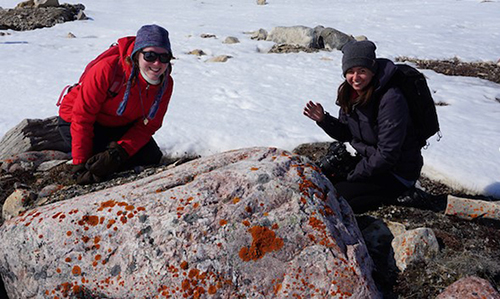
POLARflicks video contest winners
POLAR recently held a video contest, POLARflicks, to encourage early career and Indigenous researchers to communicate their excitement about polar research through two-minute videos about their projects. In April the contest judges picked three winners from among the great submissions received. First prize, a one-week introduction to research at the Canadian High Arctic Research Station (CHARS) campus in Cambridge Bay, Nunavut, went to University of Saskatchewan PhD student Kayla Buhler (veterinary microbiology) for her video “My Arctic Research Summarized in Under 2 Minutes.” Laura Dalman, a Centre for Earth Observation Science Master’s student at the University of Manitoba captured second prize, a $1,500 grant, for her video “Mysterious Sea Algae.” Third prize went to Neomi Jayaratne, a Master’s student in Environmental Studies at Wilfrid Laurier University, for her video “Community Resilience to Climate Change.” Neomi wins a $1,000 grant.
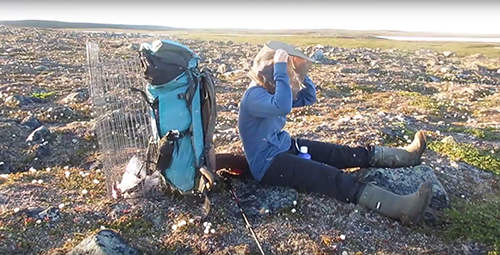
SmartICE wins Governor General’s Innovation Award
SmartICE, an innovative project that counts POLAR among its funders, has won a 2019 Governor General’s Innovation Award. SmartICE takes some of the guesswork out of ice travel in changing times by combining the ice expertise of Inuit hunters with sophisticated technology, providing hunters with sea-ice thickness information gathered from stationary sensors and mobile instruments mounted on sleds. A community-based social enterprise that gives young people an opportunity to get involved in science, SmartICE first operated in Nain, Nunatsiavut and Pond Inlet, Nunavut. The project has been expanding to other communities including Cambridge Bay, as Inuit across the north recognize its potential for improving ice travel safety.
